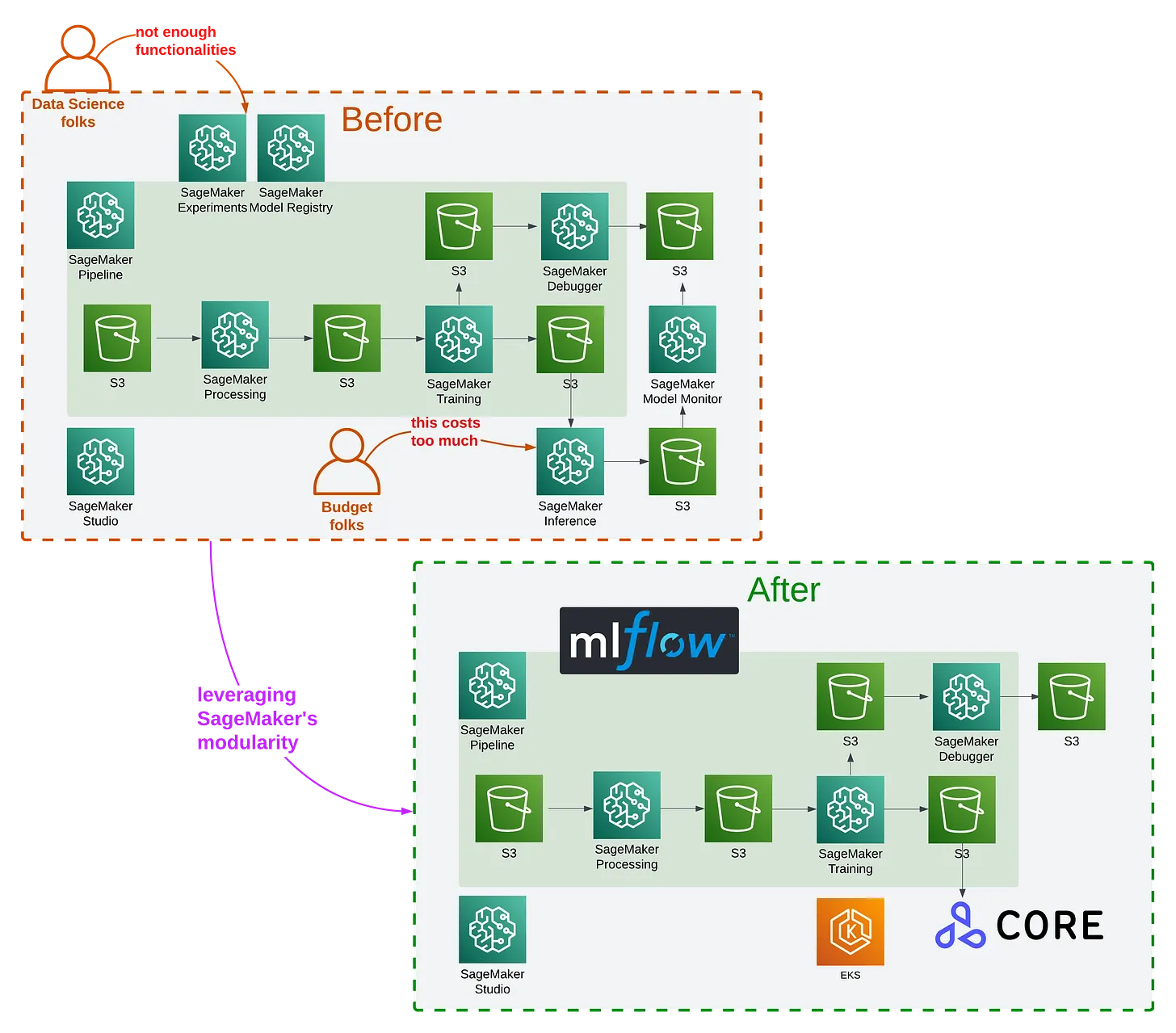You can freely replace SageMaker services with other components as your project grows and potentially outgrows SageMaker.

You can freely replace SageMaker services with other components as your project grows and potentially outgrows SageMaker.

Airflow has been one of the most popular orchestrating tools for several years.
(see the graph above)
Mlflow supports both Conda and Docker-based projects.
in MLflow 2.0, the mlflow.evaluate() API for model evaluation is now stable and production-ready. With just a single line of code, mlflow.evaluate() creates a comprehensive performance report for any ML model.
MLflow 2.0 also adds AutoML to MLflow Recipes, dramatically reducing the amount of time required to produce a high-quality model.
AutoML in MLflow 2.0
In MLflow 2.0, MLflow Recipes is now a core platform component with several new features, including support for classification models, improved data profiling and hyperparameter tuning capabilities.
MLflow Recipes in MLflow 2.0
Real project demoing MLflow & DVC, Prometheus & Grafana.
See an example for combining mlflow and DVC e.g. here: https://github.com/mbunse/mlcomops/tree/meetup_erlangen
Real project combining MLflow & DVC.
Infos in the comments about DVC MLOps & one suggesting ClearML.
-Stars history comparing MLOps platforms: - Airflow - mlflow - Argo-workflows - DVC - pachyderm - ClearML - Kubeflow - Luigi
ingest -> split -> transform -> train -> evaluate -> register
I don't think it allows you to add steps other than the ones defined here.
In short, MLflow makes it far easier to promote models to API endpoints on various cloud vendors compared to Kubeflow, which can do this but only with more development effort.
MLflow seems to be much easier
Bon Appétit?
Quick comparison of MLflow and Kubeflow (check below the annotation)
MLflow is a single python package that covers some key steps in model management. Kubeflow is a combination of open-source libraries that depends on a Kubernetes cluster to provide a computing environment for ML model development and production tools.
Brief comparison of MLflow and Kubeflow